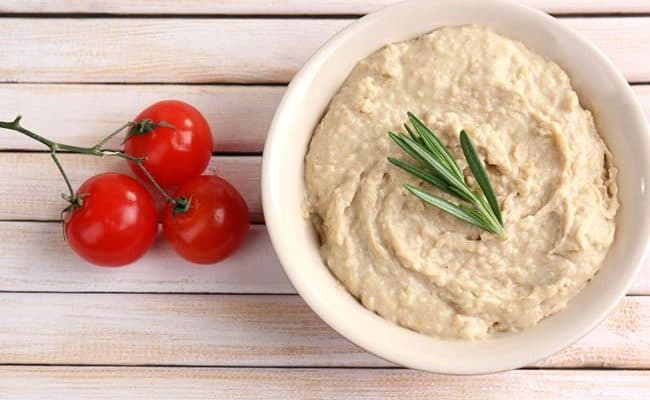
Getting fats from your diet provides energy, essential fatty acids, a solvent to absorb fat soluble nutrients, helps make you feel full after eating and are necessary for building cell membranes. Eliminating all fats from the diet is not recommended because you need essential fatty acids omega 3 and 6.
In fact, eating a diet higher in monounsaturated fats, like the Mediterranean diet, has been linked to being beneficial for weight loss, lowering risk for heart attack, stroke and even premature death.
Eating the right types of fat can be beneficial. How much fat should you get from your diet?
Eating up to 35% of calories from fat can be recommended as long as most of this is from foods high in monounsaturated fats.
Eliminating processed foods like commercially made sweets, packaged chips, cookies and some foods from fast food restaurants can help lower your intake of unhealthy fats.
See Also: How many calories are in a pound of fat?
Benefits of fat
Omega 3 and omega 6 are vital nutrients the body gets from food. These nutrients helps regulate blood clotting, relaxation of blood vessels and inflammation. Omega 3 helps lower inflammation and promotes relaxing blood vessels and lowering blood clotting while omega 6 has the opposite effect.
Monounsaturated fats can also provide health benefits related to heart health. All fats provide a concentrated source of energy, building blocks for cell membranes and a source for absorbing fat soluble vitamins.
Eating a combination of protein, fiber and fat at a meal can also help keep you feeling satisfied after eating.
Dangers of too low fat intake
There can be risk factors for getting too low levels of fat intake. Getting less than 20% of calories from fat is not recommended. Dietary fats are necessary building blocks for many hormones in the body.
Not getting enough fats could alter some hormone levels. If your diet is higher in simple carbohydrates, triglyceride levels and cholesterol levels could be negatively affected.
Another danger from too low fat intake is not getting the recommended amount of omegas 3 and 6. Inflammatory levels in the body could be affected.
Lowered absorption of fat soluble vitamins could also be hampered.
Fats to eliminate
Health experts from Harvard Health (1) suggest it’s not the amount of fat to focus on eliminating, it’s the type. One specific type of fat, trans fat, should be eliminated from the diet as much as possible.
Trans fats can be found in hydrogenated vegetable oils used in processed snacks, coffee creamers, baked goods and fast foods.
Trans fats can increase inflammation, harmful LDL cholesterol levels and lower healthy HDL cholesterol levels.
According to Harvard Health (2), for 2% of calories coming from trans fats, risk for heart disease increases by 23%.
Fats to eat in moderation
Fats solid at room temperature like from meats, dairy or coconut oil are considered saturated fats. Saturated fats have been associated with increasing risk for heart disease for many decades.
However, some newer research studies have questioned the link between saturated fats and harming heart health (3).
Guidelines are still in place for limiting saturated fat intake to less than 10% of total calories.
However, instead of replacing saturated fat sources with refined carbohydrates, they should be replaced with mono or polyunsaturated fats or high fiber carbohydrates (4).
For example, instead of mayo on a sandwich which is higher in saturated fats, replace it with avocado which is higher in monounsaturated fats.
Fats that are healthy
Mono and polyunsaturated fats like those found in fatty fish, flaxseeds, leafy vegetables, plant oils, avocados, nuts and seeds are considered healthy sources of fat.
These fats provide essential fatty acids and can also be beneficial for heart health.
Most Americans get too much omega 6 sources like safflower, soy and corn oil and don’t get enough omega 3 food sources like walnuts, flaxseeds and fatty fish.
In fact, most Americans get 14-25 times the recommended intake of omega 6 (5) which can promote inflammation. Therefore, trying to increase omega 3 intake can may be beneficial for most people.
Eating a diet like the Mediterranean diet that is rich in fruits, vegetables, olive oil, nuts, seafood and legumes has been associated with many health benefits such as lowering risk for premature death, stroke and heart attack (6).
This diet provides a higher amount of fat than other diet styles, but it is primarily based on heart healthy fats. This diet is also high in fiber, antioxidants, vitamins and minerals.
Conclusion
Eliminating all fat your diet is not healthy, and in fact it could be dangerous. Fats are needed for an energy source, absorbing nutrients, providing satiety and the building blocks for hormones and cell membranes.
Instead of eliminating all fats from your diet, focus on eating the right types of fats. The only fat that should be eliminated from the diet is trans fats.
Trans fats are man made fats that make liquid fats more like a solid fat. This type of fat is found in hydrogenated oils which can be found in coffee creamers, packaged snacks, fast food and baked goods.
Eating most of your fats from mono and polyunsaturated fats is recommended.
Getting up to 30-35% of calories from fat is ok if the majority is from foods high in mono and polyunsaturated fats.
Examples of these healthy fats are: vegetable oils, nuts, seeds, fatty fish, avocados and leafy vegetables.
Switching out saturated fats for heart healthy fats or high fiber carbohydrate sources is also recommended.
Switching out saturated fats for simple carbohydrates is not recommended. Eating more omega 3 food sources is also recommended.











